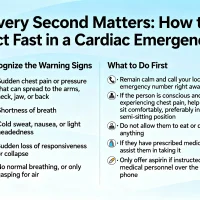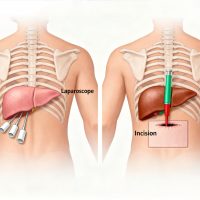Don’t Let Stomach Troubles Derail Your Journey
Food Poisoning or Gastroenteritis? When It Becomes an Emergency – Paradise destinations like Bali offer incredible culinary adventures, from street food markets to beachside warungs. However, unfamiliar foods, different preparation methods, and new bacteria can sometimes trigger digestive distress. Understanding the difference between minor stomach upset and serious medical emergencies can be crucial when you’re far from home.
Understanding the Difference: Food Poisoning vs. Gastroenteritis
Food Poisoning: The Immediate Reaction
Food poisoning happens when you swallow contaminated food or water. Your body purges the toxin through vomiting and diarrhea. Symptoms usually only last a day or two. This typically occurs within hours of consuming contaminated food or beverages and often resolves relatively quickly with proper care.
Gastroenteritis: The Broader Picture
It usually refers to gastroenteritis, or stomach inflammation, that results from these pathogens. Viral gastroenteritis is an intestinal infection that includes signs and symptoms such as watery diarrhea, stomach cramps, nausea or vomiting, and sometimes fever. This condition can be caused by viruses, bacteria, or parasites and may last longer than simple food poisoning.
Common Symptoms
Typical Symptoms That Can Often Be Managed
Most cases of food poisoning and mild gastroenteritis present with predictable symptoms including nausea, vomiting, diarrhea, stomach cramps, and mild fever. Treatment for food poisoning involves getting plenty of rest and drinking lots of fluids. Using oral rehydration salts can help prevent dehydration if a person is experiencing vomiting and diarrhea.
Warning Signs That Require Professional Care
Because of diarrhea and vomiting, you also can become dehydrated. Watch for signs of dehydration, such as dry skin, a dry mouth, feeling lightheaded, and being really thirsty. Additional concerning symptoms include persistent high fever, severe abdominal pain, and inability to keep fluids down.
When to Seek Immediate Medical Attention
Severe Dehydration Symptoms
You have symptoms of severe dehydration, like persistent dizziness, only passing small amounts of urine, or no urine at all, requiring immediate medical intervention. “For example, low sodium can lead to confusion, seizures, and even coma in severe cases,” Cadden says. “Low potassium is often linked to muscle cramps, weakness, and heart rhythm problems.”
Critical Warning Signs
Inability to keep fluids down, signs of dehydration. Symptoms last longer than five days. Fever lasts more than three days or is higher than 104°F (40°C). Severe abdominal pain or a rigid, distended abdomen.
High-Risk Populations
But for infants, older adults, and people with compromised immune systems, viral gastroenteritis can be deadly. These vulnerable groups require more aggressive monitoring and may need medical attention sooner than healthy adults.
Immediate Self-Care Measures
Prioritize Hydration
Adults should also see a doctor if they aren’t able to drink enough liquids or oral rehydration solutions, such as Pedialyte, Naturalyte, Infalyte small, frequent sips of clear fluids work better than large amounts that may trigger more vomiting.
Rest and Recovery
Allow your digestive system to recover by avoiding solid foods initially. Gradually reintroduce bland foods like rice, toast, and bananas as symptoms improve. Avoid dairy products, caffeine, alcohol, and fatty foods during recovery.
Monitor Your Symptoms
Keep track of symptom severity, frequency of vomiting and diarrhea, and your ability to retain fluids. Document any concerning changes that might indicate worsening condition.
When Travelers Are Most Vulnerable
High-Risk Situations
Street food, buffets that sit at room temperature, raw or undercooked meats, unwashed fruits and vegetables, and contaminated water sources pose the greatest risks. Ice cubes made from untreated water can also be problematic.
Environmental Factors
Hot, humid climates can accelerate bacterial growth in food. Poor sanitation facilities and inadequate refrigeration in some areas increase contamination risks. Traveler’s diarrhea becomes more likely when visiting regions with different bacterial environments than your home country.
Prevention Strategies for Travelers
Food Safety Guidelines
Choose hot, freshly cooked foods and avoid items that have been sitting out. Peel fruits yourself and drink bottled or properly treated water. When in doubt, remember the traveler’s motto: “Cook it, peel it, or forget it.”
Hygiene Practices
Wash hands frequently with soap and water, especially before eating and after using restrooms. Carry hand sanitizer for situations where soap and water aren’t available.
Travel Preparation
Pack oral rehydration salts, probiotics, and basic medications for digestive issues. Research local healthcare facilities before you need them and ensure your travel insurance covers emergency medical treatment.
Treatment Approaches
Supportive Care
That means the treatment supports your body’s natural healing process rather than curing gastroenteritis. It might include: IV fluids to prevent or correct dehydration and electrolyte imbalances. Parenteral nutrition to give your body energy without using your stressed digestive system.
Professional Medical Intervention
Up to one litre of water per hour can be lost in the diarrhoea. Diagnosis is made by isolation of the organism from the stool. The main line of treatment is rehydration through oral or intravenous routes. Antibiotic is generally given as it shortens the duration of illness.
Cultural Considerations in Bali
Understanding local food preparation methods and ingredients can help you make safer choices. Many traditional Indonesian dishes are naturally safer due to cooking methods, while others may present risks for unaccustomed digestive systems.
Recovery and Return to Normal Activities
Gradual reintroduction of normal activities and foods prevents relapse. Listen to your body and avoid rushing back to rich foods or strenuous activities. Full recovery may take several days to a week, depending on severity.
Long-Term Health Considerations
Some individuals may experience post-infectious complications or prolonged digestive sensitivity. If symptoms persist beyond expected recovery time or if you develop new concerning symptoms, seek medical evaluation.
Your Trusted Medical Partner in Bali
When digestive emergencies strike during your Indonesian adventure, having immediate access to international-standard medical care can prevent minor issues from becoming major health crises. BIMC Kuta specializes in treating travel-related health issues, including severe gastroenteritis and food poisoning complications.
Our experienced medical team understands the unique challenges travelers face and provides comprehensive care from initial assessment through complete recovery. We maintain fully equipped facilities for emergency rehydration therapy, diagnostic testing, and specialized treatment protocols for severe gastrointestinal conditions.
With English-speaking physicians, modern laboratory facilities, and direct billing arrangements with major international insurance providers, BIMC Kuta ensures you receive prompt, effective treatment without the stress of language barriers or payment complications.
BIMC Hospital Kuta
Jl. Bypass Ngurah Rai No. 100X, Kuta, Badung, Bali 80361
Call Centre 24 Hours +62 811 960 8500
Emergency Call 24 Hours: +62 361 761 263 / +62 812 386 5548
www.bimcbali.com
Service Hours:
- Emergency Department: 24 hours daily
- General Consultations: 8:00 AM – 8:00 PM daily
- Specialist Appointments: Monday-Friday 8:00 AM – 5:00 PM
BIMC KUTA International Standard Healthcare in Bali
Don’t let digestive emergencies ruin your Indonesian adventure. Experience peace of mind knowing expert medical care is always available when you need it most.
© 2025 BIMC Hospital Kuta. All rights reserved.











